|
|
|
|
|
|
|
|
Anchorage Senior Arctic Official Meeting, October 20-22, 2015 (Anchorage, Alaska, USA). The Alaska Dispatch News reports the high-profile, plenary meeting was discussed by the State Department earlier this week by Julia Gourley of the State Department: To guide its 2015-17 chairmanship, she said, the U.S. delegation has settled on three broad goals -- improving Arctic Ocean safety, security and stewardship; improving economic and living conditions for people in the Arctic; and addressing climate change impact in the Arctic. Within those broad goals are numerous and varied programs and projects, some of them carried on from the just-ended Canadian chairmanship and prior years of Arctic Council work, and some introduced by U.S. officials, Gourley said.
Today's Congressional Action:
The House of Representatives and Senate are in session and expected to consider non-Arctic legislation.
|
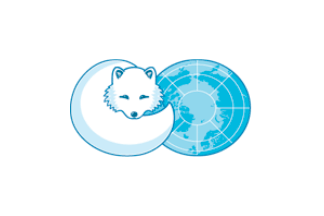 Alaska Youth Impress International Officials with Arctic Literacy. Arctic Council officials from around the world are convening in Anchorage this week to discuss diplomatic initiatives and policy proposals. But Tuesday evening, dozens of delegates and experts took a break from international politics for an event focused on Alaska's youth. In the first half of the evening at the Alaska Native Heritage Center, following hors d'oeuvres and opening remarks, the Arctic delegates and experts sat back in their chairs to watch the University of Alaska Anchorage's celebrated Seawolf Debate team. Alaska Dispatch News Alaska Youth Impress International Officials with Arctic Literacy. Arctic Council officials from around the world are convening in Anchorage this week to discuss diplomatic initiatives and policy proposals. But Tuesday evening, dozens of delegates and experts took a break from international politics for an event focused on Alaska's youth. In the first half of the evening at the Alaska Native Heritage Center, following hors d'oeuvres and opening remarks, the Arctic delegates and experts sat back in their chairs to watch the University of Alaska Anchorage's celebrated Seawolf Debate team. Alaska Dispatch News
Northern Expert: Put Up or Shut Up With Your Arctic Conflict Theory. The Arctic is on the verge of conflict; so the theory goes. Melting ice is uncovering a trove of riches, we are told, and Putin feels entitled to all of it. Imagining the Arctic is somehow immune to the conflicts the West is embroiled in with Russia in other regions of the globe is wishful thinking. The Bear is increasingly armed and dangerous. Alaska Dispatch News
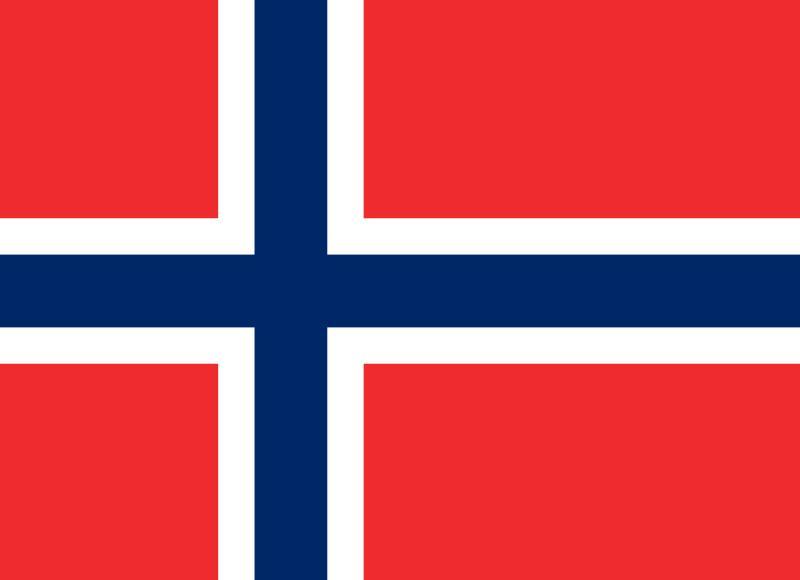 Norway Reviews Ice Risk to Offshore Operations. Some oil and gas installations in the Barents Sea could be threatened by encroaching sea ice, an investigation from a Norwegian safety regulator found. The arctic waters of the Barents Sea hold significant oil and gas reserves, but exploiting those reserves comes with significant risk. While Norway has one of the most advanced offshore drilling programs in the world, the International Energy Agency said concerns run the gamut from ecological to economic risks. UPI Norway Reviews Ice Risk to Offshore Operations. Some oil and gas installations in the Barents Sea could be threatened by encroaching sea ice, an investigation from a Norwegian safety regulator found. The arctic waters of the Barents Sea hold significant oil and gas reserves, but exploiting those reserves comes with significant risk. While Norway has one of the most advanced offshore drilling programs in the world, the International Energy Agency said concerns run the gamut from ecological to economic risks. UPI
Survey Shows Billions of Juvenile Arctic Cod Under Sea Ice. What happens under the Arctic ice cap has largely been hidden from the prying eyes of science. But a new under-ice trawl net has changed that. A recent study published in the journal Polar Biology found a Arctic cod lurking there in the billions. Alaska Public Radio
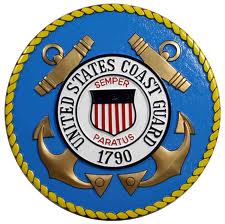 Coast Guard Completes Arctic Shield 2015. The Coast Guard concluded Arctic Shield 2015 Tuesday after a successful period of sustained operations of deployed personnel and assets in the Arctic. Throughout Arctic Shield operations, the Coast Guard strategically positioned and operated cutters, aircraft, and personnel from Nome through the Bering Strait to the Arctic, and as far north as the North Pole. Alaska Native News Coast Guard Completes Arctic Shield 2015. The Coast Guard concluded Arctic Shield 2015 Tuesday after a successful period of sustained operations of deployed personnel and assets in the Arctic. Throughout Arctic Shield operations, the Coast Guard strategically positioned and operated cutters, aircraft, and personnel from Nome through the Bering Strait to the Arctic, and as far north as the North Pole. Alaska Native News
|
Legislative Action
No Arctic legislation was formally considered yesterday.
|
|
Future Events
The Polar Oceans and Global Climate Change, November 3-6, 2015 (La Jolla, California USA). The American Polar Society will host this Symposium at Scripps Institution of Oceanography. A flyer with a partial list of presenters is available on the Society's website (americanpolar.org) and from the Society's Membership Chairman by email.
Forum for Arctic Modeling and Observational Synthesis Meeting, November 3-6, 2015 (Cape Cod, MA, USA). On November 3rd, the 2015 School for young scientists will consider "Regional Oceanography of the Arctic marginal seas" with lectures covering major features of atmospheric, sea ice and oceanographic regimes of the: Bering, Chukchi, Beaufort, East-Siberian, Laptev Sea, Kara, Barents and Nordic seas. On November 4-6, the meeting portion will summarize project accomplishments for the last 3 years of activities and will focus on the formulation of scientific questions and directions for FAMOS future research (2016-2019) to: (a) improve Arctic modeling, employing very high resolution models; (b) develop and test new arctic monitoring/observing systems and (c) improve predictions of Arctic environmental parameters with reduced uncertainties.
Due North: Next Generation Arctic Research & Leadership, November 5-8, 2015 (Calgary, Alberta, Canada). The Association of Canadian Universities for Northern Studies (ACUNS) will convene an interdisciplinary conference of early career scientists working on Arctic issues. Topics will include: Arctic Communities, Arctic Sustainable Development, Arctic Wildlife, Ecosystem and Biodiversity, Arctic Food Security, Arctic Landscapes, Climate Change and Adaptation, Disaster Risk Management, Policy, Politics and Leadership, Arctic Environment (Data and Techniques), Arctic Resources, and Future of Arctic.
Matchpoints Seminar, November 12-13, 2015 (Aarhus, Denmark). The purpose of the conference is to provide a forum for policy-makers and academics to deliberate on how the security, resilience and sustainability of the globalized Arctic region and its peoples may be enhanced, and what instruments of governance may most suitably contribute. The conference will spell out (1) how the different relevant dimensions of security (military, economic, environmental, energy and human security) manifest themselves in the governing / governance arrangements in the Arctic; (2) how the challenges associated with each manifest themselves, individually and together; and (3) what forms of governing arrangements can best help to address the challenges. The conference will also focus on (4) how the Nordic countries and nations, including Greenland, the Faroe Islands and Aaland Islands, may contribute to the peace, stability and prosperity of the Arctic region through collaborative efforts based on their shared social, human, environmental and democratic values.
** New this week** Arctic Circle Forum (ACF) Singapore, November 12, 2015 (Singapore). The event will be hosted by The Arctic Circle and Singapore Maritime Institute (SMI), with the support of the Singapore Government. The ACF Singapore will be opened by President of Iceland Ólafur Ragner Grímsson and Deputy Prime Minister and Coordinating Minister for National Security of Singapore Teo Chee Hean. Discussions will focus on a range of topics related to Arctic shipping, infrastructure financing, ocean science and research, as well as global collaboration on Arctic affairs. Among the speakers and participants will be Senior Arctic Officials, representatives of major shipping companies, investment funds, and scientific institutes from the United States, Europe, and a number of Asian states.
Arctic Observing Open Science Meeting, November 17-19, 2015 (Seattle, Washington). The Arctic Observing Open Science Meeting will be 2.5 days and held at the Hyatt at Olive 8 in Seattle, Washington. The conference will bring together individuals and teams involved in the collection, processing, analysis, and use of observations in the Arctic - from academia, agencies, industry, and other organizations. The meeting will be convened as a combination of plenary talks, parallel science sessions, and a poster session. The deadline for the Meeting Registration is Tuesday, 20 October. The agenda and registered attendees can be found on the meeting website.
In the Spirit of the Rovaniemi Process 2015, November 24-26, 2015 (Rovaniemi, Lapland, Finland).When the Arctic Environmental Protection Strategy, the so-called Rovaniemi Process, was adopted in 1991, it aimed at overcoming divisions and turning the zone of Cold War military tensions into a region of peace and co-operation. In this joint effort focusing on the protection of environment, and later, sustainable development, the Arctic states supported by indigenous organizations laid grounds for institutionalized collaboration and the emergence of Arctic regional identity. The second international conference will bring together decision-makers, scholars, artists, designers and students to address these questions and discuss the Arctic in global, regional and local perspectives.
Arctic Encounter Paris (AEP 2015), December 11-12, 2015 (Paris, France) (During the UN Convention on Climate Change - COP21). The Arctic Encounter Paris will take place at the French Senate at Luxembourg Palace and the 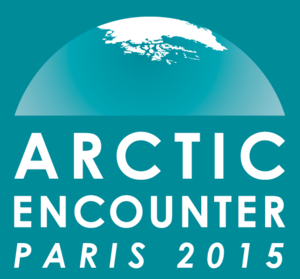 French Military College, École Militaire, in Paris, France, on the final days of the monumental United Nations Convention on Climate Change (COP21) where thousands of global citizens and government delegates will be gathered to deliberate the world's response to our changing planet in Paris. The AEP is the only Arctic policy side event currently planned to take place during the UN Convention. A reception will take place following the closing panel. French Military College, École Militaire, in Paris, France, on the final days of the monumental United Nations Convention on Climate Change (COP21) where thousands of global citizens and government delegates will be gathered to deliberate the world's response to our changing planet in Paris. The AEP is the only Arctic policy side event currently planned to take place during the UN Convention. A reception will take place following the closing panel.
 Fall meeting of the American Geophysical Union, December 14-18, 2015 (San Francisco, California). The 48th meeting of the union brings together nearly 24,000attendees, and lots of Arctic research results. The scientific program is here. There will be several Arctic-related "Town Hall" meetings, including those sponsored by NASA, DOE, NSF, ISAC, IARPC, and SEARCH. Fall meeting of the American Geophysical Union, December 14-18, 2015 (San Francisco, California). The 48th meeting of the union brings together nearly 24,000attendees, and lots of Arctic research results. The scientific program is here. There will be several Arctic-related "Town Hall" meetings, including those sponsored by NASA, DOE, NSF, ISAC, IARPC, and SEARCH.
This symposium is part of an ongoing initiative of the National Academies of Science Polar Research Board to expand public understanding of why the dramatic changes affecting the Arctic region ultimately matter to us all. The agenda features engaging presentations and discussions with top Arctic science and policy experts, and displays and interactive exhibits that illustrate Arctic change and its global impacts. The event is free and open to the public. There are sponsorship opportunities, and a call for exhibitor applications (by Oct.31, 2015). Audience space is limited, so register today; and please encourage your friends, neighbors, and colleagues to participate-as our goal is to reach well beyond the small circle of specialists who typically attend Arctic-themed events in the DC area. The U.S. Arctic Research Commission is helping to sponsor this event.
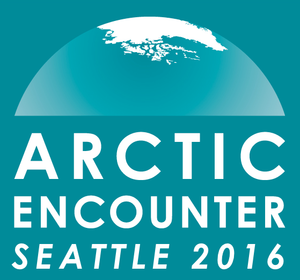 Building upon the preceding Arctic Encounter event in Paris, the third annual Arctic Encounter Symposium (AES) in Seattle, Washington will convene policymakers, industry leaders, and leading experts to confront the leading issues in Arctic policy, innovation, and development. As the largest annual Arctic policy event in the United States, the AES mission is to raise awareness, engage challenges, and develop solutions for the future of a region and a people. The two-day program includes two keynote luncheons, expert plenary sessions, break out sessions, a networking cocktail reception and seated dinner. A closing reception will take place at the conclusion of the program. Building upon the preceding Arctic Encounter event in Paris, the third annual Arctic Encounter Symposium (AES) in Seattle, Washington will convene policymakers, industry leaders, and leading experts to confront the leading issues in Arctic policy, innovation, and development. As the largest annual Arctic policy event in the United States, the AES mission is to raise awareness, engage challenges, and develop solutions for the future of a region and a people. The two-day program includes two keynote luncheons, expert plenary sessions, break out sessions, a networking cocktail reception and seated dinner. A closing reception will take place at the conclusion of the program.
|
|

  
4350 N. Fairfax Drive, Suite 510
Arlington, VA 22203, USA
External links in this publication, and on the USARC's World Wide Web site ( www.arctic.gov) do not constitute endorsement by the US Arctic Research Commission of external Web sites or the information, products or services contained therein. For other than authorized activities, the USARC does not exercise any editorial control over the information you may find at these locations. These links are provided consistent with the stated purpose of this newsletter and the USARC Web site.
|
|
|
|
|
|
|
|
|